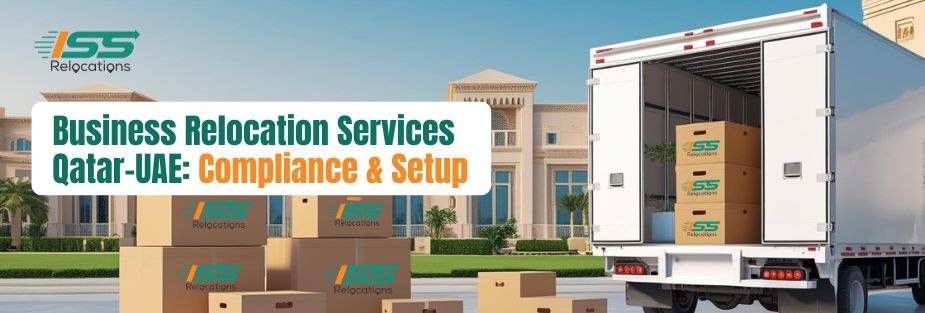
International Shipping Bulletin for March 2024
MARKET ANALYSIS:
Amidst the ongoing uncertainties in the Red Sea, shipping lines persist in diverting their vessels around the Cape of Good Hope as a precautionary measure to bypass the Suez Canal. This alternative routing entails prolonged transit times exceeding 14 days, accompanied by an elevated risk of cargo roll-offs and other logistical delays.
Emergency surcharges, designed to offset additional costs beyond the control of moving companies, have been instituted by shipping lines. These surcharges, denoted by various names such as “war risk,” “Equipment or operational recovery,” and “PSS,” have seen a general reduction since their initial implementation. Nonetheless, consumers must remain vigilant about their impact on overall shipping costs.
It is crucial to recognize that these surcharges, attributed to operational disruptions, are unlikely to be rescinded immediately upon the resumption of Suez Canal transits. Current assessments suggest a potential return to normalcy in the second half of the year, prompting a review of the continued application of these surcharges by shipping lines.
Given the fluid nature of the situation, shipping lines prioritize the safety of vessels and crews, leading to a reluctance to resume Suez Canal transits until security concerns are fully addressed. Until such a resolution occurs, further delays and disruptions remain inevitable.
Complications in the Panama Canal are affecting shipments to the US West Coast and the West Coast of Latin America. Climatic changes, including a current drought, have induced shipping delays, causing disruptions across supply chains. Clients with shipments passing through the Panama Canal should anticipate substantial delays.
While these challenges pose unique obstacles, the most noticeable impact for those undertaking moves lies in the potential extension of notice periods required to secure vessel space and the inevitability of increased transit times or delays. Some shipping lines recommend providing 4-6 weeks’ notice when booking to Jebel Ali (Dubai) and the broader Middle Eastern region. Similar precautions may be adopted by other ports/trades, and despite coverage agreements with shipping lines, certain popular destinations may encounter issues.
Moreover, the likelihood of containers being rolled or rescheduled to later vessels is on the rise as shipping lines manage their volumes. In such instances, these occurrences are beyond the control of moving companies.
To mitigate potential challenges, customers are advised to transparently communicate and plan moving dates in advance with their chosen moving company, allowing ample time for booking suitable vessels for transporting belongings.
Although issues in the Red Sea appear stabilized, resulting in steadier freight rates, shipping lines continue implementing measures to compensate for low volume levels. These measures include canceling entire vessel schedules, eliminating routine destination ports, and implementing ‘slow-steaming’ to reduce fuel consumption. Consequently, advertised voyage times may be slower than anticipated, with last-minute re-booking of loaded containers becoming arbitrary.
We reiterate the importance of preparedness for uncertainty and extended transit times, even after a vessel has departed, as shipping lines are known for their limited compensation for delays.
TRADE IMBALANCE:
The persisting trade imbalance on some routes, primarily due to the scarcity of import shipments reaching European and UK ports, poses an additional challenge for shipping lines. This shortage results in a lack of readily available empty sea containers for reloading and exporting, potentially impacting customers’ preferred moving dates.
As previously reported, freight rates on certain trades have plummeted, prompting shipping lines to implement countermeasures such as reduced vessels and slow-steaming. However, BAR movers continue to benefit from negotiated annual freight contracts, offering a degree of stability. The prevailing uncertainty is expected to gradually subside, with stability returning over the coming months.
Service challenges, sudden changes to container bookings, and variable freight rates, despite downward trends, will inevitably be reflected in the inter-continental door-to-door quotations and terms provided by BAR movers.
MARKET AVAILABILITY:
While the acceptance of container bookings for export shipments from the UK has markedly improved, challenges persist on several routes where demand currently outstrips available space.
Eastbound trades from Europe (shipments to Asia, Oceania, India, and the Middle East) are most affected by Suez Canal diversions and are likely to incur operational surcharges. While acceptance remains generally favorable, increased notice periods are observed for these routes, with potential impacts from canceled sailings and slow steaming. Customers should be prepared for sea-container shipments to take Longer than anticipated, beyond the control of BAR Movers.
Westbound trades from Europe (USA, Canada, Caribbean, and Latin America) currently see good acceptance of bookings, with improvements in waiting times for unloading at most USA ports. However, high demand during peak-season summer months may lead to a shortage of empty containers. Certain destination ports in the Pacific Northwest, like Seattle, Portland, and Vancouver, lack direct ‘all water’ service, with alternative routes via US East Coast ports resulting in delays due to intermittent congestion on US rail networks.
Southbound trades from Europe (South, East, and West Africa) remain unchanged, with reliable services offered by shipping lines on established routes. However, many hinterland destinations have been omitted from schedules due to main port congestion and inadequate on-carrying transport infrastructure, leading to reduced coverage across the region.
UK HAULAGE:
Recent challenges in container road haulage within the UK, stemming from a shortage of drivers, have significantly improved with diminishing demand. The majority of shipping lines have withdrawn Driver Retention surcharges. While the preference is to load containers directly at customer residences, container hauliers often prefer collecting from movers’ warehouses, particularly in busy cities. Customers are cautioned that direct residence loading is prone to container no-shows, whereas loading via movers’ warehouses offers greater certainty.
CURRENCY EXCHANGE DIFFERENCES:
Shipping lines quote container freight rates and ancillary charges in foreign currencies, while actual payments are made in British Pounds (GBP) based on the exchange rate at the ship’s sailing date. BAR Movers incorporate indicative exchange rates in their GBP quotations, but customers should anticipate adjustments in the final invoice, reflecting the actual exchange rate applied by the Shipping Line at dispatch.
FUEL COST CHANGES:
Sea container freight contracts undergo periodic fuel cost reviews, with potential increases due to bunkering expenses. Recent energy supply issues have seen bunkering costs rise, with potential impacts on overall sea container freight costs.
PORT STRIKES:
While no current strikes are scheduled, past labor and Border Force strikes at UK ports have caused unexpected delays to both outbound (export) and inbound (import) shipments. Customers should remain mindful of potential future strike actions, particularly their impact on UK customs clearance and subsequent container deliveries.
LITHIUM-ION BATTERIES:
The inclusion of ‘Li-ION’ batteries in household and personal effects shipments remains a complex matter due to increased fire risks. Shipping lines inconsistently standardize rules for inclusion or exclusion, often deciding on a shipment-by-shipment basis. BAR Overseas Group strongly recommends against shipping Li-ION batteries. If included, the shipment may be classified as ‘Hazardous Cargo,’ requiring the shipping line’s permission and incurring substantial freight surcharges. Failure to declare Li-ION batteries as hazardous material could lead to serious legal consequences, including fines and confiscation of the consignment.
CONCLUSION:
BAR Overseas movers, with their extensive experience, are committed to facilitating efficient and trouble-free overseas moves. This update aims to provide unbiased information on the state of shipping and its challenges. For further inquiries, please contact your BAR mover.
Plan Stress-free Move with Top Moving Company in UAE - ISS Relocations

Moving Company - Recent Blog
Stay informed and prepared for your next move with our latest blogs on moving services in the UAE. From expert packing tips to international relocation guides, ISS Relocations brings you up-to-date insights to make your moving experience smoother, safer, and stress-free.










